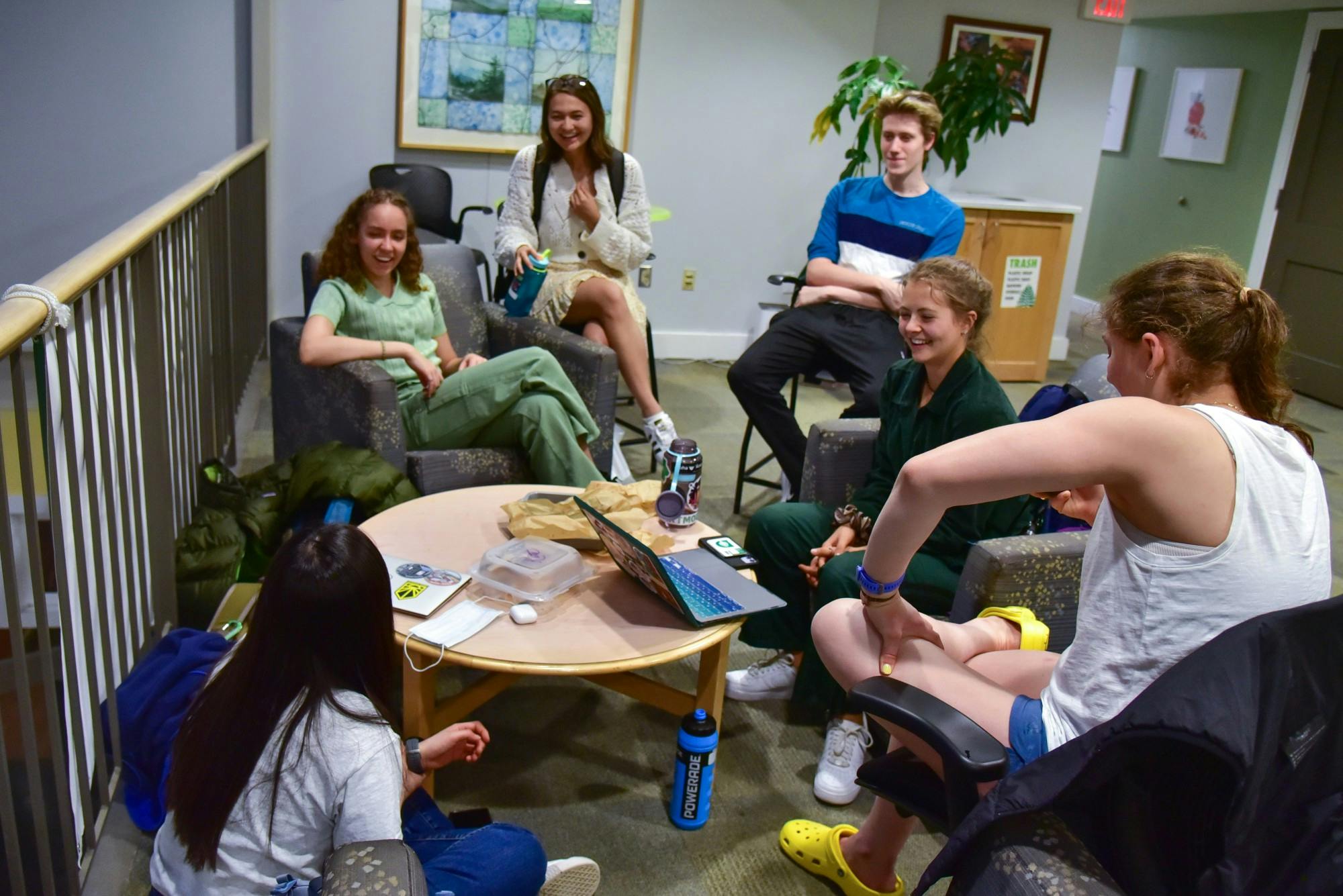This spring, a coalition of vegan students and plant-based allies came together to create Eating for the Earth, a new club intended to advocate for more vegan-friendly options in Dartmouth Dining and raise awareness about plant-based eating. Eating for the Earth gained recognition by the Council on Student Organization during the winter and had their first in-person meeting in March.
Eating for the Earth founder Kate Yeo ’25 said she got the idea to found the club after she and other vegans living in the Choates cluster began coming together to make vegan baked goods.
“In the fall term, we all just started using the kitchen and cooking and baking together,” Yeo said. “I thought we could try to formalize it and make it something that — if we had COSO resources — we would be able to share it with more people.”
Within a couple weeks of starting a GroupMe in the second week of winter term, Yeo said the group had grown to around 100 people.
“I feel like that means there was a demand for it,” Yeo said. “There just wasn’t anyone who had initiated it before.”
Anna Roodnitsky ’25, who serves as the president of Eating for the Earth, said that the group came together due to the lack of a plant-based eating community on campus.
Molly Fried ’25, a vegetarian, said she joined the club hoping to learn more about veganism.
“I think it’s super interesting and definitely underrepresented at Dartmouth, so I think it’s a great place to meet new people, share different [Class of 1953 Commons] hacks and learn more about [veganism] in general,” Fried said.
Yeo said one of the club’s goals is to work with Dartmouth Dining to improve options for students. She added that so far, they have worked with Dartmouth Dining to improve the spring term menu for the Herbivore section of ’53 Commons and ensure that there is a vegan soup option during every meal. Yeo said she is pleased with the progress they have made so far, and she complimented Dartmouth Dining’s receptiveness to feedback.
Dartmouth Dining chef Chris Kaschak emphasized the importance of student feedback, saying he is very open to suggestions on current menu items and even new recipes.
“I think communication is really huge, just having the student population come up and say, ‘Hey, can we have this?’” Kaschak said.
Dartmouth dietician Beth Rosenberger said that when she meets with students who are concerned about not getting enough protein and minerals, she is also receptive to suggestions.
“I always look for their suggestions and ideas for things [that] they’re looking for on a regular basis,” Rosenberger said.“That’s how we’ve implemented so many different things into the program, because students [tell us what they want] and we try it.”
After Yeo said she confronted Dartmouth Dining with the concern that the salad bar tofu was “weird and spongy,” Rosenberger met with the purchasing manager and procured different flavored tofu to add into the menu rotation. Kaschak said the new tofu additions were “very, very well received.”
In trying to accommodate students’ requests, both Kaschak and Rosenberger said some changes were easier to implement than others, as it “sometimes takes us longer than you think it should.”
Dartmouth Dining receives student feedback through emails, the Text-and-Tell system and meeting with students like Yeo who have requests and suggestions, according to Kaschak.
“Even though it doesn’t seem like we have a lot of stuff or we’re missing stuff or it’s not out, we really are trying the best we can to meet everybody’s needs and honor their request and get the things out that [they] really want,” Rosenberger said.
According to Yeo, the club is also currently seeking to provide a community for vegans on campus and incoming ’26s through a plant-based guide.
“It’s going to show the best vegan options at each location on campus and off campus,” Yeo said. “There’s a lot of hidden things that people don’t know about because they’re off [the] menu.”
Yeo added that the club’s mission extends beyond food.
“I think there’s a lot of ways to raise awareness about the plant-based movement,” Yeo said. “For [the club,] that’s just creating a really fun community with good food, where people can just vibe, hang out and learn about it.”




